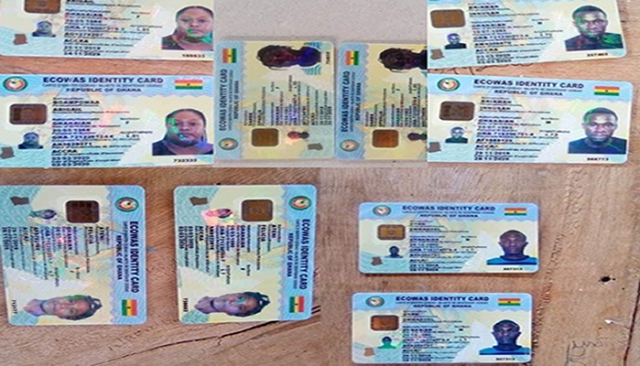The National Identification Authority (NIA) is facing a dual challenge as it races to clear a backlog of unprinted Ghana Cards while grappling with over 600,000 unclaimed IDs lying idle in its offices nationwide.
Despite the recent arrival of 700,000 blank cards to address printing delays dating back to 2023, the Authority is now urging citizens to collect their long-awaited IDs, some of which have been ready since 2018.
In a press release issued on February 18, the NIA revealed that the newly acquired blank cards will be used to print pending records, including first-time issuances, replacements, and updates to personal information. A technical team has been formed to fast-track the printing process and ensure the cards are distributed to regional and district offices for collection.
However, the bigger issue remains the staggering number of unclaimed Ghana Cards. “We have over 600,000 cards sitting in our offices, waiting to be collected,” the NIA stated. “These cards are crucial for accessing essential services, and we urge all applicants to visit their nearest NIA office to pick them up.”
The Ghana Card, a mandatory identification document for citizens aged 15 and above, is a cornerstone of the government’s digital inclusion agenda. It is required for accessing banking services, healthcare, voter registration, and other critical transactions. Yet, despite its importance, thousands of Ghanaians have yet to collect their cards, raising questions about awareness and logistical challenges.
The NIA has promised to develop a more efficient distribution system to address the issue, though details of the plan remain under wraps. In the meantime, the Authority is stepping up public awareness campaigns to encourage citizens to claim their cards.
For many, the delays and unclaimed cards highlight systemic inefficiencies within the NIA’s operations. “I registered for my Ghana Card years ago, but I haven’t heard anything since,” said Ama Serwaa, a trader in Kumasi. “I need it to open a bank account, but I don’t even know where to start looking for it.”
The backlog of unprinted cards has also drawn criticism, with some accusing the NIA of failing to meet its mandate. The arrival of the 700,000 blank cards is expected to ease the pressure, but experts warn that the Authority must address both production and distribution challenges to restore public confidence.
“The Ghana Card is more than just an ID—it’s a gateway to essential services and economic participation,” said governance analyst Kwame Asare. “The NIA must not only clear the backlog but also ensure that citizens can easily access their cards once they’re printed.”
As the NIA works to resolve these issues, the unclaimed Ghana Cards serve as a stark reminder of the gap between policy and implementation. For the thousands still waiting, the promise of a more inclusive and efficient system cannot come soon enough.
Send your news stories to newsghana101@gmail.com
Follow News Ghana on Google News


















